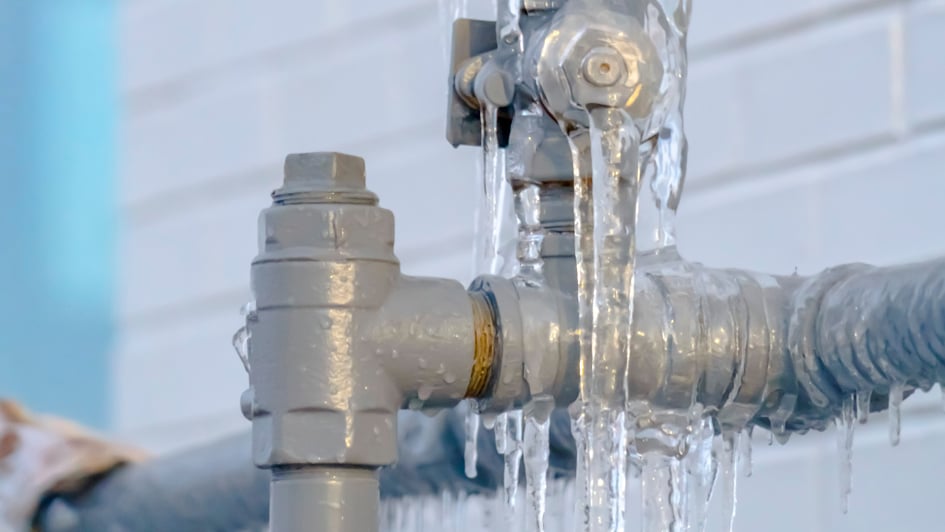Lots of snow and winter weather brings fun activities like sledding down a nearby hill or snowball fights in the front yard. However, winter weather can be difficult on your home. Severely cold conditions can encourage the water lines in your home to freeze and burst, which could cause severe water damage and enduring negative effects.
When your pipes are frozen, you might need to hire a plumber in Beckley to handle the problem. That being said, there’s multiple things you can attempt to stop this from happening – and even minor prevention can go a long way.
What Pipes Are at More Risk of Freezing
The pipes at the largest risk of freezing are exposed water lines. Prevalent locations for uninsulated pipes are in attic crawlspaces, near exterior walls, in the basement or even running underneath a modular home. Water lines that are not correctly insulated are at the biggest risk.
How to Stop Pipes from Freezing in Your Home
Thoroughly insulating uncovered water lines is a good first step to keeping your pipes safe. You’ll likely find lots of these materials from a local plumbing company, and might also already have some inside your home.
Be careful not to cover other flammable insulation materials where they can catch fire. If you don’t feel safe insulating the pipes yourself, get in touch with your local plumbing services professional in Beckley to handle the job.
If you do choose to insulate the pipes on your own, good insulation materials for pipes include:
- Wraps or roll insulation: Multiple plumbers, hardware stores and large retailers provide insulation – commonly fiberglass, foam wraps or pipe sleeves – that you can wrap or fit around your pipes. They are offered in different lengths and sizes to fit the needs of your home.
- Newspaper: To a decent degree, newspaper can be used as an insulator. If the weather is cooling down and you aren’t able to add insulation in time, try wrapping uninsulated pipes in this.
- Towels or rags: If you miss the opportunity to install insulation and don’t have any newspaper to use, wrapping particularly vulnerable pipes with towels or clean rags as a final effort may be just enough to keep the cold air away from the pipes.
Another preventative step you can try to keep pipes from freezing in your home is to seal up any cracks that can let cold air in your home. Focus on the window frames, which can draw in surprisingly intense drafts. This not only will help to prevent your pipes from freezing, but it will have the additional benefit of making your home more energy efficient.
Five More Ways to Keep Your Pipes from Freezing:
- Open the cabinet doors. Opening the cabinet doors under the sinks and other spaces of your home that have pipes will enable more warm air from the rest of the room to reach the pipes.
- Letting water drip. Keeping a flow of water by letting your faucets trickle even a small amount can help thwart frozen pipes.
- Open interior doors. By opening doors between rooms or hallways, your home can be heated more equally. This is especially important if there’s a room that tends to be colder or hotter than other rooms.
- Close the garage door. The exception to the open doors tip is the garage door, which you should keep closed – particularly if your water lines run through the garage.
- Keep the heat steady. Experts recommend setting the thermostat at a uniform temperature and leaving it there, rather than permitting it to get lower at night. Set it no lower than 55 degrees.
How to Prevent Pipes from Freezing in an Empty Home
When you’re inside a house, it’s not difficult to know when something breaks down. But what additional steps can you try to prevent pipes from freezing in a vacant home or vacation home when the damages from a frozen pipe can remain unnoticed for days or even weeks?
As with a primary residence, insulating any exposed water lines, opening interior doors throughout the home and winterizing the vacant home are the basic steps to try at first.
Added Steps to Keep Pipes from Freezing in a Vacant Home:
- Leave the heat on. Even though you won’t always be home, it’s best to leave the heat on – even if you switch the thermostat down lower than you would if you were there. As with a primary residence, experts suggest keeping the temperature at no colder than 55 degrees.
- Shut water off and drain the lines. If you’re going to be gone for a long time or are winterizing a seasonal cabin or cottage, switching the water off to the house and clearing the water out of the water lines is a good way to stop pipes from freezing and bursting open. Don’t forget to flush the water out of your appliances, including the hot water heater, as well as the toilets. Make sure you clear out all the water from the system. If you’re uncertain of how to flush the water from the pipes, or don’t feel confident handling it yourself, a plumber in Beckley will be happy to assist.




